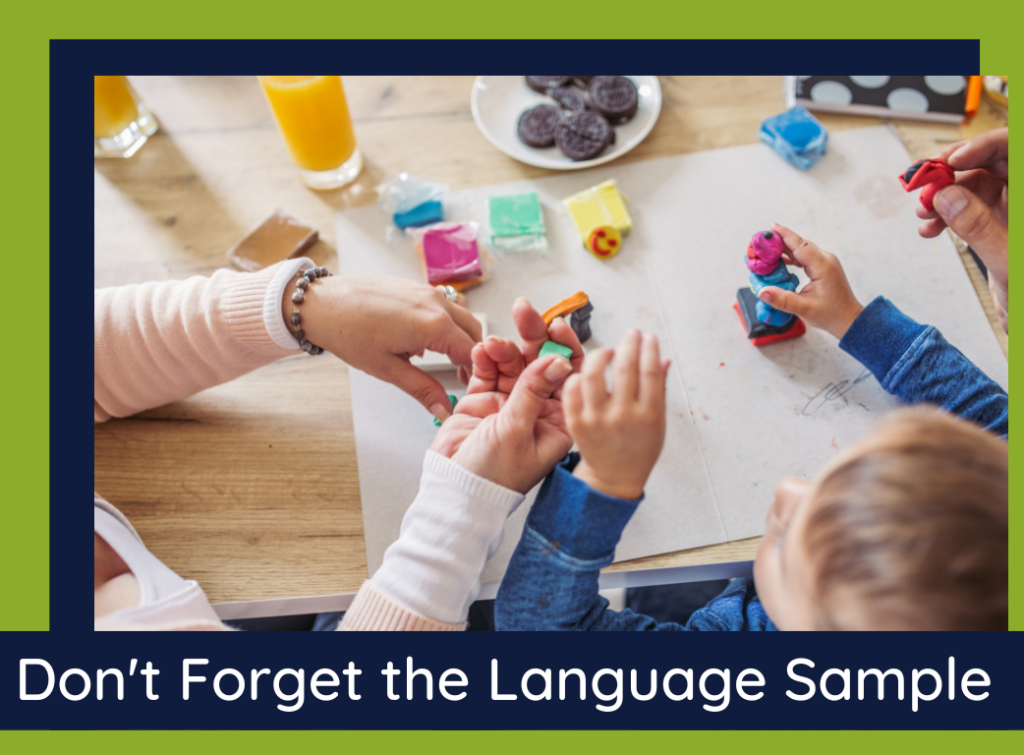More informal assessments can sometimes be pushed aside in the face of ever-increasing caseloads, time pressures, and a focus on percentile scores. They can be time-consuming to transcribe, but I’m here to encourage you to continue (or start) to do language samples as part of your assessment plan. Here are the advantages of completing a language sample.

A language sample gives you an idea of how children functionally use language.
Some kids we assess perform really, really well on standardized assessments but, in fact, can have significant language delays. Why might they perform better? It might be that there are visual cues in the pictures, and the formats for most assessments follow a predictable pattern, which can help children be successful. As well, some kids are very test savvy. Lastly, some children have been taught language in a drill and grill manner. That structure fits into many standardized tests, so children may be able to answer the questions but not use those concepts in everyday communication.
Language samples take many of these elements away, and you can better understand how they use language every day.
You can gather lots of information from a language sample.
How long are their sentences? How often do they speak? What kinds of vocabulary do they use or don’t use? What kinds of pragmatic functions do they use? How is their turn-taking? How is their grammar? Do they stay on topic? These are just a few of the many, many ways to use a language sample. If you want a copy of my language sample form for young students, click here.
As we know, there are strengths and weaknesses in every standardized assessment we have available. Language samples can help to get a broader, more cohesive profile of a child’s language profile.
A language sample can help assess a child’s articulation skills.
Again you can obtain a more complete picture of a child’s pronunciation. It can help you determine when children have trouble pronouncing certain sounds/words and in what context. How is their pronunciation beyond the sentence level?
Language samples can help you measure progress over time.
I’m lucky. I get to see the children I serve over an extended period of time. It’s fun to sit down with parents and compare their child’s language samples. It provides concrete evidence of their child’s progress. It can also help parents see the areas where their child needs to focus. I find that parents are more open to working on these areas of weakness and implementing strategies that I recommend.
Now I’m not saying to rely solely on language samples but that they serve an essential function in your assessment tool belt and should be incorporated as much as possible in your assessment plan.

2 Comments